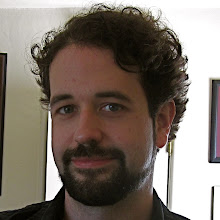Reading this chapter has me excited to look at the science of learning in greater detail.I've realized over the course of this year that not everybody learns like I do, and that even the things that "worked" for me were not necessarily the best ways for me to learn.
I enjoyed the side discussion about "Fish is Fish", in which a fish is told about the terrestrial world by a frog and interprets everything the frog says through the filter of what the fish already knows. This is an aspect of learning and thinking that I think everybody needs to be made aware of; many of the difficulties and conflicts that come up between people (and communities, and nations) can be traced back to this sort of blindness to our own paradigms.
The book is absolutely right when it says that you have to address a student's mental framework (paradigm) in order to get them engaged in learning. There are two especially tricky things about dealing with flawed paradigms, though:
1.) People are generally oblivious to the fact that they have paradigms. A person's conceptual framework is so ingrained into how they see the world that they have no sense of how it limits them. Asking a person to be aware of his/her paradigms is like asking a fish to be aware of water.
2.) When you do confront people with the flaws in their paradigms, they often get really defensive about them. People don't want to discard their pre-established ways of looking at the world. It's threatening and uncomfortable, and it makes them feel stupid. People will often ride a flawed paradigm down into utter disaster, long after it becomes evident to everyone else that the framework is flawed (c.f. Operation Iraqi Freedom; Vietnam War; fiscal policy under Herbert Hoover; collectivist farms in Stalinist Russia; Roman Catholic Church re: geocentric model of the universe; et cetera, ad nauseum).
Since I'm going to be teaching physics in the spring, I have a big challenge ahead of me with confronting student paradigms. Somehow I need to address the many, many misconceptions they will have about how physics works, without making them feel threatened or attacked in the process.
It's going to be an interesting semester...
Subscribe to:
Post Comments (Atom)

No comments:
Post a Comment